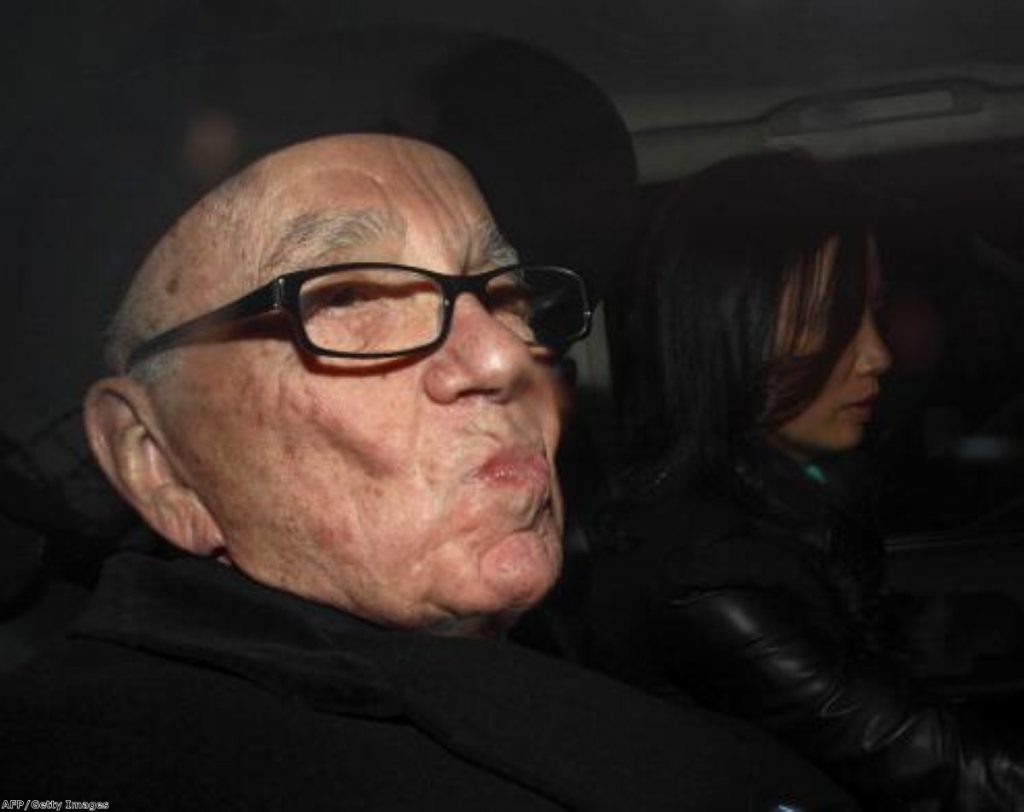Murdoch blames cover-up for phone-hacking ‘failure’
Rupert Murdoch has blamed "one or two individuals" for not telling him about phone-hacking at the News of the World in his appearance at the Leveson inquiry.
The News Corporation chairman struck a mixed tone of contrition and aggression for much of his evidence, but conceded that the phone-hacking scandal represented a "serious blot on my reputation".
He said that responsibility for not spotting the wrongdoing at News of the World was down to a handful of individuals, including the now defunct tabloid's editors.
"I think the senior executives and I were all misinformed and shielded from anything that was going on there.
"I do blame one or two people for that who perhaps I shouldn't name, because perhaps for all I know they may be arrested yet.
"But there's no question in my mind that maybe even the editor but certainly beyond that someone took charge of a cover-up which we were victim too and I regret."
Mr Murdoch later conceded: "I have to admit that some newspapers are closer to my heart than others. I also have to say I failed."
Giving evidence under oath for a second day, the 81-year-old on the offensive as he sought to highlight the way in which business factors influenced other newspapers' editorial policies.
He criticised the Telegraph for "running a paper for their own commercial interests" before attacking the Mail's editor Paul Dacre for recently admitting he followed a similar approach.
He even hit out at the inquiry's lead counsel Robert Jay, who had suggested that Mr Murdoch's delegation of investigating phone-hacking allegations to Les Hinton might be "consistent with a desire to cover up".
Mr Murdoch replied: "To minds like yours, perhaps," before withdrawing the remark. Mr Jay observed: "I'm very thick-skinned."
Later Mr Murdoch conceded that News International's response to early probes into phone-hacking by MPs was "far too defensive and disrespectful to parliament".
He apologised to workers at News of the World for having "panicked" in the face of the anger targeted at him, after it emerged teenage murder victim Milly Dowler's phone had been hacked.
Mr Murdoch also said hundreds of millions of dollars had been spent making his organisation a "new company".
Mr Jay observed: "What that answer demonstrates is that when the decision was taken to clean out the stables that was an over-reaction because you realised the history before demonstrated cover-up."
Later in the session Lord Justive Leveson gave Mr Murdoch an opportunity to express his views on the impact of the internet and his views on the future regulation of the press.
Mr Murdoch described the growth of online publications as a "disruptive technology" which threatened to wipe out print journalism completely.
In a lengthy speech of around 15 minutes he said the internet was "just too wide" to be properly regulated and warned: "I think you have a danger of regulating which will mean there'll be no press in ten years to regulate."
He attacked other websites, including Mail Online and the Huffington Post, for 'stealing' from other publications.
"When it comes to regulations I just beg for some care because it really is a very complex situation," he added.
"A varied press guarantees democracy and we want democracy rather than autocracy."
The session finished with a series of questions from John Hendy QC, the lawyer representing the National Union of Journalists. Mr Murdoch was confronted with evidence of widespread bullying at his British newspapers.
"They always struck me as being a happy crowd," he said, before acknowledging that a 'conscience clause' in journalists contracts enabling them to refuse to engage in unethical behaviour was a good idea.





-01.png)